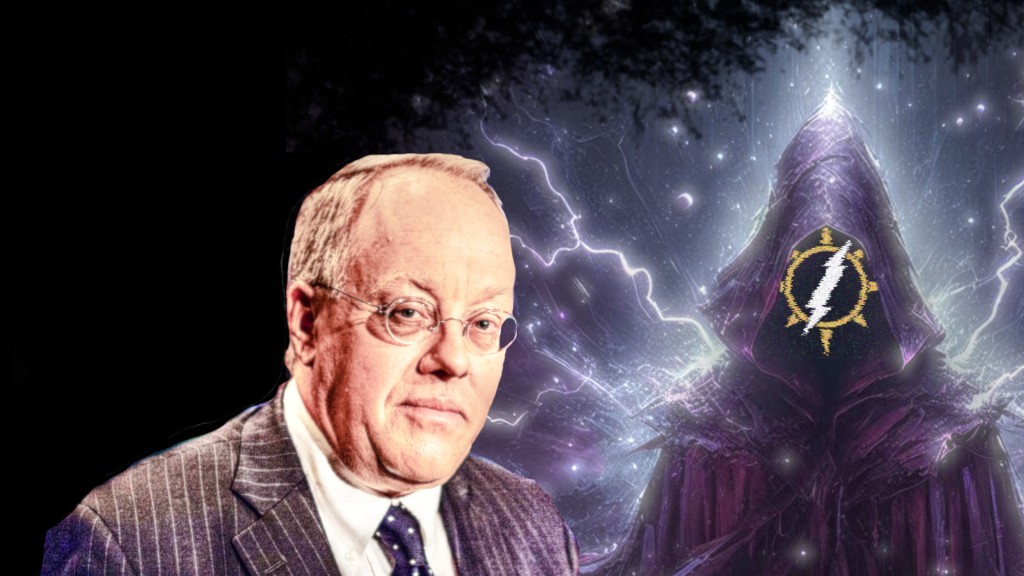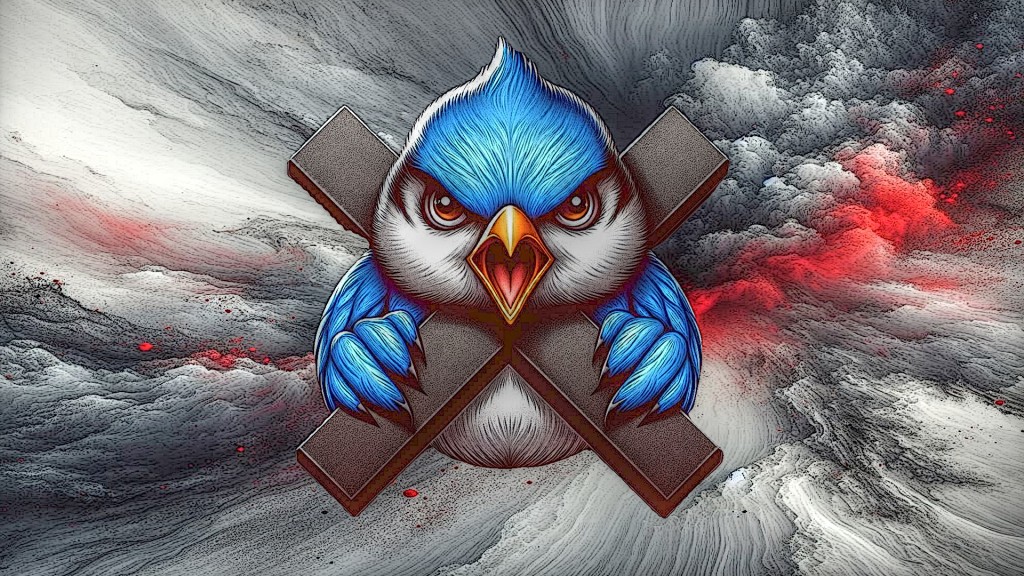From Cook Island Maori Folklore
The Fire-God’s Secret
Originally fire was unknown to the inhabitants of this world, who of necessity ate raw food.
In the nether-world (Avaiki) lived four mighty ones: Mauike, god of fire; the Sun-god Ra; Ru, supporter of the heavens; and lastly, his wife Buataranga, guardian of the road to the invisible world.
To Ru and Buataranga was born a famous son Maui. At an early age Maui was appointed one of the guardians of this upper world where mortals live. Like the rest of the inhabitants of the world, he subsisted on uncooked good. The mother, Buataranga, occasionally visited her son; but always ate her food apart, out of a basket brought with her from nether-land. One day, when she was asleep, Maui peeped into her basket and discovered cooked food. Upon tasting it, he was decidedly of opinion that ti was a great improvement upon the raw diet to which he was accustomed. This food came from nether-world; it was evident that the secret of fire was there. To nether-world, the home of his parents, he would descend to gain this knowledge, so that ever after he might enjoy the luxury of cooked food.
On the following day Buataranga was about to descend to Avaiki (nether-world), when Maui followed her through the bush without her knowing it. This was no different task, as she always came and returned by the same road. Peering through the tall reeds, he saw his mother standing opposite a black rock, which she addressed as follows –
Buataranga, descend thou bodily through this chasm.
The rainbow-like must be obeyed.
As two dark clouds parting at dawn,
Open, open up my road to nether-word, ye fierce ones.
At these words the rock divided, and Buataranga descended. Maui carefully treasured up these magic words; and without delay started off to see the god Tane, the owner of some wonderful pigeons. He earnestly begged Tane to lend him one; but the proffered pigeon not pleasing Maui, was at once returned to its owner. A better pigeon was offered to the fastidious borrower, but was rejected. Nothing would content Maui but the possession of Akaotu, or Fearless, a red pigeon, specially prized by Tane. It was so tame that it knew its name; and, wander wherever it might, it was sure to return to its master. Tane, who was loth to part from his pet, extracted a promise from Maui that the pigeon should be restored to him uninjured. Maui now set off in high spirits, carrying with him his red pigeon, to the place where his mother had descended. Upon pronouncing the magic words which he had overheard, to his great delight the rock opened, and Maui, entering the pigeon, descended. Some assert that Maui transformed himself into a small dragon-fly, and perched upon the back of the pigeon, made his descent. The two fierce guardian demons of the chasm, enraged at finding themselves imposed upon by a stranger, made a grab at the pigeon, intending to devour it. Fortunately, however, for the borrower, they only succeeded in getting possession of the tail; whilst the pigeon, minus its beautiful tail, pursued its flight to the shades. Maui was grieved at the mishap which had overtaken the pet bird of his friend Tane.
Arrived at nether-land, Maui sought for the home of his mother. It was the first house he saw: he was guided to it by the sound of her cloth-flail. The red pigeon alighted on an oven-house opposite to the open shed where Buataranga was beating out cloth. She stopped her work to gaze at the red pigeon, which she guessed to be a visitor from the upper world, as none of the pigeons in the shades were red. Buataranga said to the bird, “Are you not come from ‘daylight?’ ” The pigeon nodded assent. “Are you not my son Maui?” inquired the old woman. Again the pigeon nodded. At this Buataranga entered her dwelling, and the bird flew to a bread-fruit tree.Maui resumed his proper human form, and went to embrace his mother, who inquired how he had descended to nether-world, and the object of his visit. Maui avowed that he had come to learn the secret of fire. Buataranga said, “This secret rests with the fire-god Mauike. When I wish to cook an oven, I ask your father Ru to beg a lighted stick from Mauike.” Maui inquired where the fire-god lived. His mother pointed out the direction, and said it was called Are-aoa (house-of-banyan-sticks). She entreated Maui to be careful, “for the fire-god is a terrible fellow, of a very irritable temper.”
Maui now walked up boldly towards the house of the fire-god, guided by the curling column of smoke. Mauike, who happened at the moment to be busy cooking an oven of food, stopped his work and demanded what the stranger wanted. Maui replied, “A fire-brand.” The fire-brand was given. Maui carried to to a stream running past the bread-fruit tree and there extinguished it. He now returned to Mauike and obtained a second fire-brand, which he also extinguished in the stream; The third time a lighted stick was demanded of the fire-god, he was beside himself with rage. Raking the ashes of his oven, he gave the daring Maui some of them on a piece of dry wood. These live coals were thrown into the stream as the former lighted sticks had been.
Maui correctly thought that a fire-brand would be of little us unless he could obtain the secret of fire. The brand would eventually go out; but how to reproduce the fire? His object therefore was to pick a quarrel with the fire-god, and compel him by sheer violence to yield up the invaluable secret, as yet known to none but himself. On the other hand, the fire-god, confident in his own prodigious strength, resolved to destroy this insolent intruder into his secret. Maui for the fourth time demanded fire of the enraged fire-god. Mauike ordered him away, under pain of being tossed into the air; for Maui was small of stature. But the visitor said he should enjoy nothing better than a trial of strength with the fire-god. Mauike entered his dwelling to put on his war-girdle (ume i tona maro); but on returning found that Maui had swelled himself to an enormous size. Nothing daunted at this, Mauike boldly seized him with both hands and hurled him to the height of a cocoa-nut tree. Maui contrived in falling to make himself so light that he was in no degree hurt by his adventure. Mauike, maddened that his adversary should yet breathe, exerted his full strength, and next time hurled him far higher than the highest cocoa-nut tree that ever grew. Yet Maui was uninjured by his fall; whilst the fire-god lay panting for breath.
It was no Maui’s turn. Seizing the fire-god he threw him up to a dizzy height, and caught him again like a ball with his hands. Without allowing Mauike to touch the ground, he threw him a second time into the air, and caught him in his hands. Assured that this was but a preparation for a final toss which would seal his fate, the panting and thoroughly exhausted Mauike entreated Maui to stop and to spare his life. Whatever he desired should be his.
The fire-god, now in a miserable plight, was allowed to breathe awhile. Maui said, “Only on one condition will I spare you; – tell me the secret of fire. Where is it hidden? How is it produced?” Mauike gladly promised to tell him all he knew, and led him inside his wonderful dwelling. In one corner there was a quantity of fine cocoa-nut fibre; in another, bundles of fire-yielding sticks – the “au,” the “oronga,” the “tauinu,” and particularly the “aoa,” or banyan tree. These sticks were all dry and ready for use. In the middle of the room were two smaller sticks by themselves. One of these the fire god gave to Maui, desiring him to hold it firmly, while he himself plied the other most vigorously. And thus the song of the Fire God sounded:
Grant, oh grant me thy hidden fire,
Thou banyan tree!
Perform an incantation;
Utter a prayer to
The banyan tree!
Kindle a fire for Mauike
Of the dust of the banyan tree!
By the time this song was completed, Maui to his great joy perceived a faint smoke arising out of the fine dust produced by the friction of one stick upon another. As they perceived in their work the smoke increased; and favoured with the fire-god’s breath, a slight flame arose, when the fine cocoa-nut fibre was called into requisition to catch and increase the flame. Mauike now called to his aid the different bundles of sticks, and speedily got up a blazing fire, to the astonishment of Maui.
The grand secret of fire was secured. But the victor resolved to be revenged for his trouble and his tossing in the air, by setting fire to his fallen adversary’s abode. In a short time all nether-world was in flames, which consumed the fire-god and all he possessed. Even the rocks cracked and split with the heat: hence the ancient saying, “The rocks at Orovaru (in the shades) are burning.”
Ere leaving the land of ghosts, Maui carefully picked up the two fire-sticks, once the property of Mauike, and hastened to the bread-fruit tree, where the red pigeon “Fearless” quietly awaited his return. His first care was to restore the tail of the bird, to as to avoid the anger of Tane. There was no time to be lost, for the flames were rapidly spreading. He re-entered the pigeon, which carried his fire-sticks one in each claw, and flew to the lower entrance of the chasm. Once more pronouncing the words he learnt from Buataranga, the rocks parted, and he safely got back to this upper world. Through the good offices of his mother the pigeon met with no opposition from the fierce guardians of the road to the shades. On again entering into light the red pigeon took a long sweep, alighting eventually in a lovely secluded valley, which was thenceforth named Rupe-tau, or the pigeon’s-resting-place. Maui now resumed his original human form, and hastened to carry back the pet bird of Tane.
Passing through the main valley of Keia, he found that the flame had preceded him, and had found an aperture at Teaoa, since closed up. The kings Rangi and Mokoiro trembled for their land; for it seemed as if everything would be destroyed by the devouring flames. To save Mangaia from utter destruction, they exerted themselves to the utmost, and finally succeeded in putting out the fire. Rangi thenceforth adopted the new name of Matamea, or Watery-eyes, to commemorate his sufferings; and Mokoiro was ever after called Auai, or Smoke.
The inhabitants of Mangaia availed themselves of the conflagration to get fire and to cook food. But after a time the fire went out, and as they were not in possession of the secret, they could not get new fire.
But Maui was never without fire in his dwelling: a circumstance that excited the surprise of all. Many were the inquiries as to the cause. At length he took compassion on the inhabitants of the world, and told them the wonderful secret – that fire lies hidden in the hibiscus, the urtica argentea, the “tauinu,” and the banyan. This hidden fire might be elicited by the use of fire-sticks, which he produced. Finally, he desired them to chant the fire-god’s song, to give efficacy to the use of the fire-sticks.
From that memorable day all the dwellers in this upper world used fire-sticks with success, and enjoyed the luxuries of light and cooked food.
To the present time this primitive method of obtaining fire is still in vogue; cotton, however, being substituted for fine cocoa-nut fibre as tinder. It was formerly supposed that only the four kinds of wood found in the fire-god’s dwelling would yield fire.
The Sky is Raised; Or, the Origin of Pumice Stone
The sky is built of solid blue stone. At one time it almost touched the earth; resting upon the stout broad leaves of the eve (which attains the height of about six feet) and the delicate indigenous arrow-root (whose slender stem rarely exceeds three feet). The unique flattened-out form of these leaves, like millions of outspread hands pressing upwards, is the result of having to sustain this enormous weight. In this narrow space between earth and sky the inhabitants of this world were pent up. Ru, whose usual residence was in Avaiki, or the shades, had come up for a time to this world of ours. Pitying the wretched confined residence of its inhabitants, he very laudably employed himself in endeavouring to raise the sky a little. For this purpose he cut a number of strong stakes of different kinds of trees, and firmly planted them in the ground at Rangimotia, the centre of the island and of the world. This was a considerable improvement, as mortals were thereby enabled to stand erect and to walk about without inconvenience. Hence Ru was named “the sky-supporter.”
One day, when the old man was surveying his work, his graceless son Maui contemptuously asked him what he was doing there. Ru replied, “Who told youngsters to talk? Take care of yourself, or I will hurl you out of existence.” “Do it then,” shouted Maui. Ru was as good as his word, and forthwith seized Maui, who was small of stature, and threw him to a great height. In falling Maui assumed the form of a bird, and lightly touched the ground perfectly unharmed. Maui, now thirsting for revenge, in a moment resumed to his natural form, but exaggerated to gigantic proportions, and ran to his father saying:
Ru, who supports the many heavens –
The third, even to the highest, ascend!
Inserting his head between the old man’s legs, he exerted all his prodigious strength, and hurled poor Ru, sky and all, to a tremendous height – so high, indeed, that the azure sky could never get back again. Unluckily, however, for “the sky-supporting Ru,” his head and shoulders got entangled among the stars. He struggled hard, but fruitlessly, to extricate himself. Maui walked off well pleased with having raised the sky to its present height; but left half his father’s body and both his legs ingloriously suspended between heaven and earth. Thus perished Ru. His body rotted away, and his bones, of vast proportions, came tumbling down from time to time, and were shivered on the earth into countless fragments. These shivered “bones of Ru” are scattered over every hill and valley of Mangaia, to the very edge of the sea.
The Sun Made Captive
Maui had secured fire for the advantage of mortals, had elevated the sky; but there remained one great evil to be remedied – the sun had a trick of setting every now and then, so that it was impossible to get through any work. Even as oven or food could not be prepared and cooked before the sun had set. Nor could a “karakia,” or incantation to the gods, be chanted through ere they were overtaken by darkness. Maui resolved to remove this great evil.
Now Ra, or the Sun, is a living creature and divine; in form resembling a man, and possessed of fearful energy. His golden locks are displayed morning and evening to mankind. Buataranga advised her son not to have anything to do with Ra, or the Sun, as many had at different times endeavoured to regulate him movements, and had all signally failed. But the redoubtable Maui was not to be discouraged. He resolved to capture the Sun-god Ra, and compel him to obey the dictates of his conqueror.
Maui now carefully plaited six great ropes of strong cocoa-nut fibre, each composed of four strands, and of a great length. These wonderful cords of his were named by the inventor Aei-ariki, i.e. royal nooses. Maui started off with his ropes to the distant aperture through which the Sun climbs up from Avaiki, or the land of ghosts, into the heavens, and there laid a slip-noose for him. Further on in the Sun’s path a second trap was laid. In fact, all the six ropes were placed at distant intervals along the accustomed route of Ra, or the Sun.
Very early in the morning the unsuspecting Sun clambered up from Avaiki to perform his usual journey through the heavens. Maui was lying in wait near the first “royal noose,” and exultingly pulled it; but it slipped down the Sun’s body, and only caught his feet. Maui ran forward to look after the second noose, but that likewise slipped. Luckily, however, it closed round the Sun’s knees. The third caught him round the hips; the fourth, round the waist; the fifth, under the arms. Still the Sun went tearing on his path, scarcely heeding the contrivances of Maui. But happily for Maui’s designs, the sixth and last of the “royal nooses” caught the Sun round the neck! Ra, or the Sun, now terribly frightened, struggled hard for his liberty, but to no purpose. For Maui pulled the rope so tight as almost to strangle the Sun, and then fastened the end of his rope to a point of rock.
Ra, or the Sun, now nearly dead, confessed himself to be vanquished; and fearing for his life, gladly agreed to the demand of Maui, that in future he should be a little more reasonable and deliberate in his movements through the heavens, so as to enable the inhabitants of this world to get through their employments with ease.
The Sun-god Ra was now allowed to proceed on his way; but Maui wisely declined to take off these ropes, wishing to keep Ra in constant fear. These ropes may still be seen hanging from the Sun at dawn, and when he descends into the ocean at night. By the assistance of these ropes he is gently let down into Avaiki, and in the morning is raised up out of the shades.
Source:
Myths and Songs From the South Pacific, William Wyatt Gill, 1876





